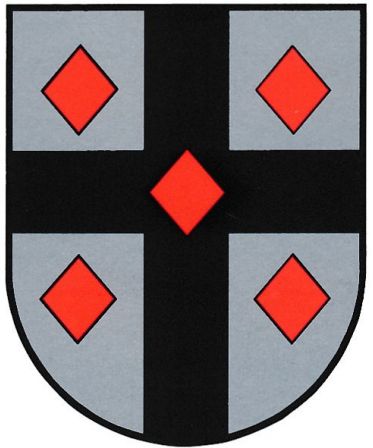Rüthen
RÜTHEN
State : Nordrhein-Westfalen
District (Kreis) : Soest (until 1975 Lippstadt)
Amt : Amt Rüthen (until 1975)
Additions : 1975 Altenrüthen, Drewer, Hemmern, Hoinkhausen, Kallenhardt, Kellinghausen, Kneblinghausen, Langenstrasse-Heddinghausen, Meiste, Menzel, Nettelstädt, Oestereiden, Weickede, Westereiden
| German | blazon wanted |
| English | blazon wanted |
Origin/meaning
The arms were granted on January 28, 1911 and confirmed on August 19, 1976.
Rüthen was founded in 1200 by the Archbishop of Köln as a fortress against the State of Paderborn. The arms are based on the oldest known seal of the city, dating from 1549. The arms show the cross of the State of Köln and five diamonds (Rauten) as a canting symbol.
After the merger in 1975 the old arms were continued, as most of the other municipalities did not use arms. According to the local council, the five red "diamonds" are also symbols for the five wounds of Jesus Christ.
| Seal from around 1900 |
The arms by Hupp in the Kaffee Hag albums +/- 1925 |
Literature: Stadler, 1964-1971, 8 volumes; Belke, 1986
